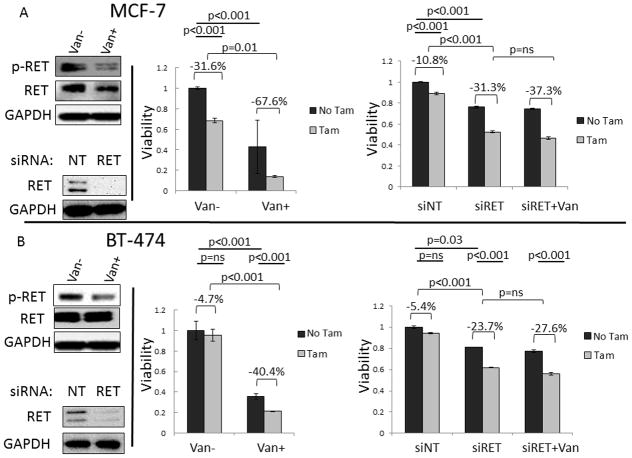FIGURE 1. Anti-RET Reduces Luminal Breast Cancer Viability and Sensitizes to Anti-ERα.
A. Treatment of MCF-7 resulted in reduced phosphorylated RET with no change in total RET. Treatment of hormone responsive MCF-7 with vandetanib or tamoxifen reduces cell viability after 48 hours (p<0.001). Treatment with vandetanib sensitizes hormone sensitive MCF-7 to tamoxifen treatment such that treatment with tamoxifen results in a larger reduction in viability in the presence of vandetanib (−67.6%) then with control treatment (−31.6%), p=0.01 using the paired t-test. Knockdown of RET causes a reduction in viability compared to non-targeting (NT) siRNA (p<0.001) and results in an increase in tamoxifen sensitivity (−10.8% to −31.3%, paired t-test p=0.01) which is not increased with both RET knockdown and vandetanib treatment (−37.3%, paired t-test p=ns), confirming that the effects are mediated by RET. B. Treatment of hormone resistant luminal breast cancer cells, BT-474 with vandetanib reduces phosphorylated RET with no effect on total RET expression. Vandetanib reduces cell viability (p<0.001) with no significant effect with tamoxifen alone (p=ns). Similar to MCF-7, treatment with vandetanib increases sensitivity to tamoxifen, −40.4% vs −4.7%, p<0.001 with paired t-test. Knockdown of RET reduces viability compared to NT siRNA (p=0.03) and sensitizes hormone resistant BT-474 to tamoxifen treatment (−23.7% compared to −5.4%, paired t-test p<0.001). Treatment with vandetanib under conditions of RET knockdown did not result in a significant reduction in viability or change in tamoxifen sensitivity (−23.7% vs −27.6%, paired t-test p=ns). All westerns were performed in triplicate with representative blots shown. All MTT experiments were performed in technical and biologic triplicate with mean and standard deviation reported. P values were calculated using unpaired (straight lines) and paired (brackets) student’s t-test where appropriate.

